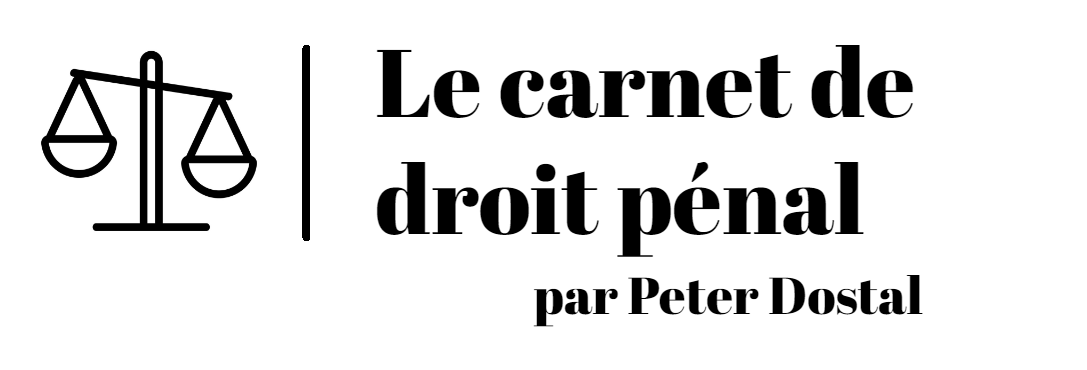« Intention » : différence entre les versions
| Ligne 369 : | Ligne 369 : | ||
==Intoxication== | ==Intoxication== | ||
{{seealso|Intoxication}} | {{seealso|Intoxication}} | ||
L'inférence des conséquences intentionnelles de son acte doit être envisagée après avoir évalué « l'ensemble de la preuve, y compris la preuve d'intoxication ».<ref> | |||
{{CanLIIRP|Seymour|1fr9z|1996 CanLII 201 ( | {{CanLIIRP|Seymour|1fr9z|1996 CanLII 201 (CSC)|[1996] 2 RCS 252}}{{perSCC|Juge Cory}} (5:0) | ||
</ref> | </ref> | ||
L'intoxication n'est pertinente que dans la mesure où elle affecte « la capacité de l'accusé à former l'intention requise » de commettre l'infraction.<ref> | |||
{{CanLIIRP|Robinson|1frbh|1996 CanLII 233 ( | {{CanLIIRP|Robinson|1frbh|1996 CanLII 233 (CSC)|[1996] 1 RCS 683}}{{perSCC|Juge en chef Lamer}} | ||
</ref> | </ref> | ||
Lorsque la preuve démontre que l'accusé a agi involontairement en raison de son intoxication, en niant l'intention dans le cas d'une infraction d'intention générale, la preuve d'intoxication volontaire peut dans certains cas remplacer la preuve du caractère volontaire.<ref> | |||
{{CanLIIRP|Tatton|g6g9d|2014 ONCA 273 (CanLII)|10 CR (7th) 108}}{{perONCA|Pardu JA}} (2:1){{atL|g6g9d|35}} - | {{CanLIIRP|Tatton|g6g9d|2014 ONCA 273 (CanLII)|10 CR (7th) 108}}{{perONCA|Pardu JA}} (2:1){{atL|g6g9d|35}} - appel à 2015 CSC 33<br> | ||
{{CanLIIRP|Bernard|1ft9w|1988 CanLII 22 ( | {{CanLIIRP|Bernard|1ft9w|1988 CanLII 22 (CSC)|[1988] 2 RCS 833}}{{Pluralité}}{{atps|878-879}} [RCS]<br> | ||
</ref> | </ref> | ||
Cette « règle de substitution de Leary » s'applique généralement aux infractions d'intention générale infraction.<ref> | |||
{{ibid1|Bernard}}{{atL|1ft9w|73}}<br> | {{ibid1|Bernard}}{{atL|1ft9w|73}}<br> | ||
</ref> | </ref> | ||
Cela n'a pas été considéré comme applicable aux infractions fondées sur des voies de fait, y compris l'agression sexuelle.<ref> | |||
{{CanLIIRP|Daviault|1frr7|1994 CanLII 61 ( | {{CanLIIRP|Daviault|1frr7|1994 CanLII 61 (CSC)|[1994] 3 RCS 63}}{{perSCC|Cory J}}<br> | ||
</ref> | </ref> | ||
Par conséquent, l'art. 33.1 a été adopté, supprimant la défense d'intoxication de certaines infractions. | |||
{{reflist|2}} | {{reflist|2}} | ||
